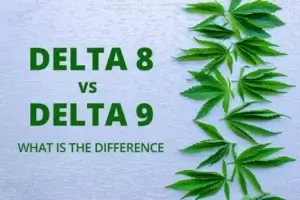Tracing Brazil’s Cannabis Trail
Brazil, a country renowned for its diverse culture and vibrant landscapes, harbors a complex and multifaceted relationship with cannabis. Known locally as ‘maconha,’ cannabis in Brazil presents a compelling narrative that blends historical practices, stringent legislations, and the potential promise of future revisions.
Historical Footprints: Cannabis in Brazil’s Cultural Landscape
Brazil’s ties with cannabis can be traced back several centuries. Introduced by African slaves in the 16th century, the plant found a home in Brazilian soil and, soon after, in the local culture. Beyond being a robust source of fiber for naval ropes, cannabis also found applications in Afro-Brazilian religious ceremonies and folk medicine, underlining an early societal acceptance of the plant.
Legal Transitions and their Implications
Influenced by changing international sentiment towards cannabis, Brazil’s stance also evolved over time. The first prohibitive measures against cannabis appeared during the Portuguese colonial era and persisted well after Brazil gained independence in 1822.
The legal attitude hardened with the enactment of the 2006 Drug Law, which classified cannabis as a harmful drug. This legislation criminalized the unauthorized cultivation, possession, and use of cannabis, subjecting offenders to penalties including compulsory drug treatment and potential imprisonment.
Reality of Cannabis Trade and Use
Despite the strict legal framework, the shadow of cannabis trade and use continues to loom over Brazil. Notably, the northeastern region has become synonymous with illicit cannabis cultivation, contributing to an extensive, clandestine drug market. This situation underscores the challenges that Brazil faces in controlling cannabis production and consumption.
New Conversations: Medical Cannabis and Changing Views
The 21st century has seen an increasing global interest in the therapeutic potential of cannabis, which has also echoed in Brazil. This dialogue, fueled by medical practitioners, patient groups, and some progressive policymakers, underscores the potential benefits of cannabis for conditions like chronic pain, epilepsy, and multiple sclerosis.
In a significant move, the Brazilian Health Regulatory Agency (ANVISA) in 2019 approved the sale of pharmaceutical products derived from cannabis, indicating a potential shift in Brazil’s traditional hardline stance.
Public Opinions and the Potential for Cannabis Reforms
Public opinion regarding cannabis in Brazil varies significantly. While many Brazilians align with the government’s viewpoint, there is a growing openness, especially among younger and urbanized demographics, towards recognizing cannabis’s medicinal value and advocating for legal reform.
While the road to cannabis law reform in Brazil is steep, the global trend towards decriminalization and legalization is casting its influence on the ongoing dialogue within the country.
The Unfolding Cannabis Narrative in Brazil
Brazil’s relationship with cannabis – from initial acceptance and stringent prohibition to a burgeoning discourse on its medicinal use – paints a compelling picture of societal and legal transformations. The evolving global perspective on cannabis is likely to impact Brazil’s narrative, possibly steering it towards a path of reform.
This ongoing dialogue is a critical aspect of Brazil’s socio-political discourse. The direction that Brazil takes in this evolving narrative can provide key insights into the larger global conversation surrounding cannabis legality and use.






